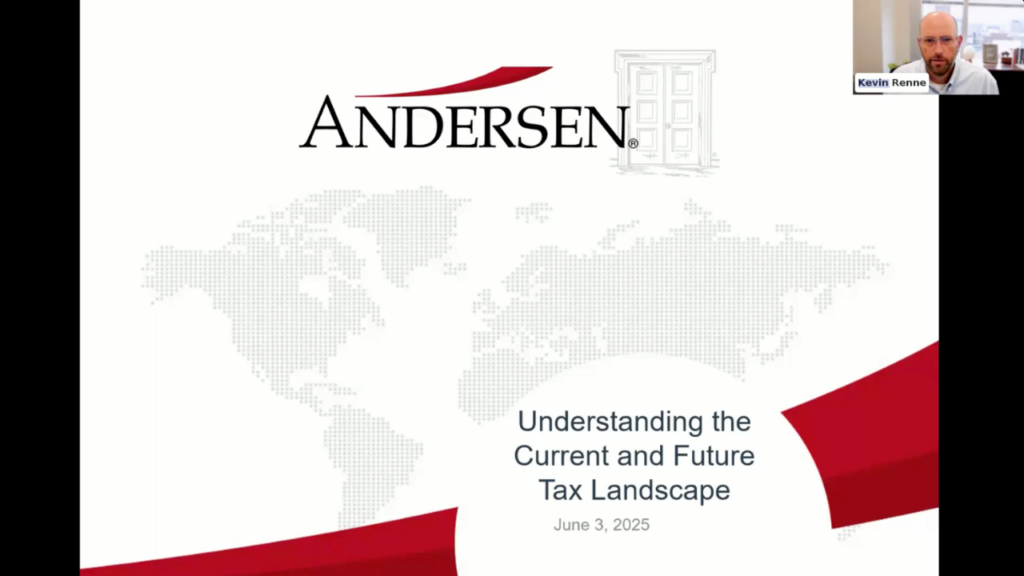IMPORTANT UPDATE: As of December 3, 2024, a Federal Court has enjoined the US from this filing requirement. It’s unclear what this court action means, how long it will last, or if the 01/01/2025 filing deadlines will be revoked or pushed back. As a firm we communicated the earlier deadlines to clients to help them complete their BOI filings, but as this court update is legal in nature, please consult with your business attorney on the ramifications for your personal situation.
In 2021, Congress enacted the Corporate Transparency Act (CTA) to curb illicit financial activities. This law requires many companies doing business in the United States to report information about who ultimately owns or controls them (“beneficial owners”). The Act expanded anti–money laundering laws and created new reporting requirements for certain companies. Beginning in 2024, many small businesses are required to report information about their beneficial owners to the Financial Crimes Enforcement Network (FinCEN) in an effort to create a national database for use by national security and law enforcement agencies to prevent the use of shell companies for criminal activity.
JFS Wealth Advisors is providing general information regarding the new reporting rules as well as initial steps that business owners should take to address the implications of the CTA to your organization. We strongly encourage you to reach out as soon as possible to legal counsel and/or your registered agent with knowledge in this area to assist your organization with the steps you need to take to be in compliance with the CTA, if applicable.
Who Must File
Both domestic and foreign reporting companies are required to file reports. A company is considered a reporting company if a document was filed with the Secretary of State (SOS) or similar office in the United States to create or register the entity. Corporations (including S corporations), LLCs, and other entities formed through registration with the SOS are subject to the reporting requirements. But, because sole proprietorships, trusts, and general partnerships do not require the filing of a formal document with the SOS, they generally are not considered a reporting company and may not have a filing requirement. Foreign companies are required to file reports if they are registered with the SOS or similar office under state law.
Some companies are exempt from reporting, but many of the exempted companies are already required to report ownership information to a governmental authority. Of particular interest to you may be the exemption for large operating companies. A large operating company is any entity with (a) more than 20 full-time US employees, (b) an operating presence at a physical office within the US, and (c) more than $5,000,000 of US-sourced gross receipts reported on its prior year federal income tax return. If you meet these qualifications, you are not subject to the new reporting requirements.
What Information Must be Provided
Beneficial ownership information (BOI) must be reported for the reporting company’s beneficial owners and, for entities formed or registered after 2023, company applicants. BOI includes an individual’s full legal name, date of birth, street address, and a unique ID number. The unique ID number can be from a non-expired US passport, state driver’s license, or other government-issued ID card. If the individual does not have any of those documents, then a non-expired foreign passport can be used. An image of the document showing the unique ID number must also be included with the report.
Beneficial Owners
Two groups of individuals are considered beneficial owners of a reporting company: (1) any individual who directly or indirectly owns or controls at least 25% of the ownership interests of the reporting company; or (2) any individual who exercises substantial control over the reporting company.
Individuals with substantial control are those with substantial influence over important decisions about a reporting company’s business, finances, and structure. Senior officers (president, CFO, general counsel, CEO, COO, and any other officer who performs a similar function) are automatically deemed to have substantial control, as are individuals with the authority to appoint or remove senior officers and board members. There is no requirement that these individuals have actual ownership in the company to be a considered a beneficial owner for reporting purposes.
Company Applicants
The company applicant is the person who actually files the document that creates or registers the reporting company (e.g., an attorney). Company applicants must provide the same information that is required of beneficial owners, but only if the reporting company is formed or registered after 2023. Because of the difficulty in tracking down information about company applicants for reporting companies that have been in existence for a number of years, reporting companies formed or registered before 2024 do not have to supply BOI for their company applicants.
FinCEN Identifiers
Individuals and reporting companies can request a FinCEN Identifier (FinCEN ID) to use in place of supplying detailed information on the report. A FinCEN ID is a unique number assigned by FinCEN which is obtained by submitting the same information as is required of a beneficial owner or reporting company. A FinCEN ID may be useful to individuals who prefer to send their personal information directly to FinCEN rather through a reporting company, or to individuals who may be required to supply information as a beneficial owner or company applicant of several reporting companies.
Important Filing Dates
- Existing Companies: For existing reporting companies created or registered before 2024, the initial report is due by January 1, 2025.
- Newly Formed Companies: For reporting companies created or registered in 2024, the initial report is due 90 days after the entity’s creation or registration.
- Companies Formed After 2024: For reporting companies created or registered after 2024, the initial report is due 30 days after the entity’s creation or registration.
Note that if there is a change to previously reported information about the reporting company or its beneficial owners, an updated report must be filed within 30 days of the change. So, it is imperative that your company implement a system to identify reportable changes and file an updated report with FinCEN in a timely manner. The penalties for willfully failing to file both initial and updated reports are steep: $500 per day that the report is late, up to $10,000, and imprisonment for up to two years.
How to File
BOI reports must be filed electronically through FinCEN’s e-filing portal, available at https://boiefiling.fincen.gov/.
This portal provides two methods to submit a report: (1) by filling out a web-based version of the form and submitting it online, or (2) by uploading a completed PDF version of the BOI report. Some third-party service providers may also offer the ability to file the BOI report through their software. The person who submits the BOI report will need to provide their name and email address to FinCEN. There is no fee for filing the report.
If you have any questions about these new reporting rules and how they affect your business, we would be happy to discuss them with you and provide you with recommendations for legal counsel and/or registered agent assistance. FinCEN also has a Small Entity Compliance Guide and a list of frequently asked questions to help guide businesses through the reporting requirements.
Act Now
Please note that the CTA is not a part of the tax code but that the assessment and application of many of the requirements set forth in the regulations, including but not limited to the determination of beneficial ownership interest, may necessitate the need for legal guidance and direction. Since we are not attorneys; our firm is not able to provide you with any legal determination as to whether an exemption applies to the nature of your entity or whether legal relationships constitute beneficial ownership. Please feel free to contact us if you have any questions.




















